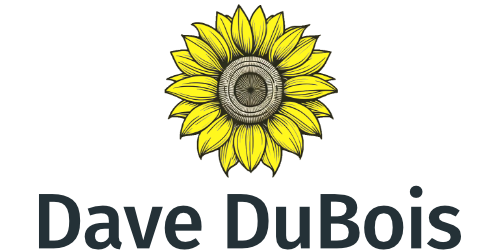
As a coach and guide, I get to witness hundreds of people on their personal development journeys. Something I see from time to time is when someone discovers a book that’s revelatory—it’s like they’ve found a secret “user’s manual” for their own mind and body. I had this experience when I first read The Highly Sensitive Person by Elaine Aaron. The book had been out for decades. Had I heard of the title? I think so, but I had no idea how big of an impact it would have on me.
Quick Facts about the Highly Sensitive Person (“HSP”)
- 20% of all humans are considered “highly sensitive,” and this mirrors the same proportion of sensitivity in over 100 different animal species.
- High sensitivity is a trait, not a disorder.
- Evidence-based: discovered by Dr. Elaine Aaron (psychologist) and confirmed by neuro-imaging/FMRI technology and decades of research in children, adults, and other species.
- “HSPs” often have experiences of:
- being deeply moved by beauty;
- feeling overwhelmed by sensory stimuli;
- needing downtime;
- having a rich and complex inner life;
- being strongly perceptive of other peoples’ moods/having the ability to “read a room”;
- avoiding violent movies or TV shows;
- exhibiting a high degree of emotional awareness/attunement and compassion.
- Often confused with being shy or detached, when someone is just observing and feeling their environment and everyone in it
- Not the same as introversion, though more HSPs are introverted than extroverted (70/30%)
- Same proportion of male and female HSPs
D.O.E.S. (Acronym for Primary Features of HSPs)
Depth of processing (process more sensory input than other human beings, which results in wanting to understand things deeply – at a nuanced and complex level; HSPS can often find/feel/make art about/write about/intuit/discuss subtle connections others can’t so easily pick up on; typically HSPs have very rich inner lives; experiencing everyday things on multiple levels beyond the material; they can feel bored or alienated if a deeper level of a discussion or work project is excluded)
Overstimulation (the threshold for stimulation is lower because they’re taking in more; they're more likely to be overwhelmed by street sounds, crowded rooms, car horns, violence, etc.)
Empathy/Emotional Reactivity (can “feel” what others are feeling in a visceral, bodily way/clairsentient; can notice their own emotional landscape more readily; can also feel flooded by emotions more easily and sometimes be reactive as a result.)
Sensing the Subtle (heightened awareness to pick up on a variety of subtle occurrences and cues simultaneously; highly intuitive – i.e., the HSP knows, but they and others don’t know how they know; tire and become exhausted more easily)
Are You Highly Sensitive?
Copyright, Elaine N. Aron, 1996
Instructions: Answer each question according to how you personally feel. Check the box if it is at least somewhat true for you; leave unchecked if it is not very true or not at all true for you.
If you are a parent trying to evaluate your child, please use the test “Is Your Child Highly Sensitive?”
- I am easily overwhelmed by strong sensory input.
- I seem to be aware of subtleties in my environment.
- Other people’s moods affect me.
- I tend to be very sensitive to pain.
- I find myself needing to withdraw during busy days,into bed or into a darkened room or any place where I can have some privacy and relief from stimulation.
- I am particularly sensitive to the effects of caffeine.
- I am easily overwhelmed by things like bright lights, strong smells,coarse fabrics,or sirens close by.
- I have a rich,complex inner life.
- I am made uncomfortable by loud noises.
- I am deeply moved by the arts or music.
- My nervous system sometimes feels so frazzled that I just have to go off by myself.
- I am conscientious.
- I startle easily.
- I get rattled when I have a lot to do in a short amount of time.
- When people are uncomfortable in a physical environment I tend to know what needs to be done to make it more comfortable (like changing the lighting or the seating).
- I am annoyed when people try to get me to do too many things at once.
- I try hard to avoid making mistakes or forgetting things.
- I make a point to avoid violent movies and TV shows.
- I become unpleasantly aroused when a lot is going on around me.
- Being very hungry creates a strong reaction in me,disrupting my concentration or mood.
- Changes in my life shake me up.
- I notice and enjoy delicate or fine scents, tastes, sounds, works of art.
- I find it unpleasant to have a lot going on at once.
- I make it a high priority to arrange my life to avoid upsetting or overwhelming situations.
- I am bothered by intense stimuli, like loud noises or chaotic scenes.
- When I must compete or be observed while performing a task, I become so nervous or shaky that I do much worse than I would otherwise.
- When I was a child, my parents or teachers seemed to see me as sensitive or shy.
Scoring
If you answered more than fourteen of the questions as true of yourself, you are probably highly sensitive. But no psychological test is so accurate that an individual should base his or her life on it. We psychologists try to develop good questions, then decide on the cut-off based on the average response.
If fewer questions are true of you, but extremely true, that might also justify calling you highly sensitive. Also, although there are as many men as women who are highly sensitive, when taking the test highly sensitive men answer slightly fewer items as true than do highly sensitive women.
A Warm Invitation
If you read what's here and think you might be a Highly Sensitive Person (or if you know you are!), I invite you to schedule a free chat with me using the link below. As a coach who specializes in working with HSPs, I can help you understand your unique traits and harness your superpowers to navigate life with less suffering. If you'd like to explore how you can realize your sensitivity as your strength, click here to schedule a free consultation: https://calendly.com/davedubois/consultation
